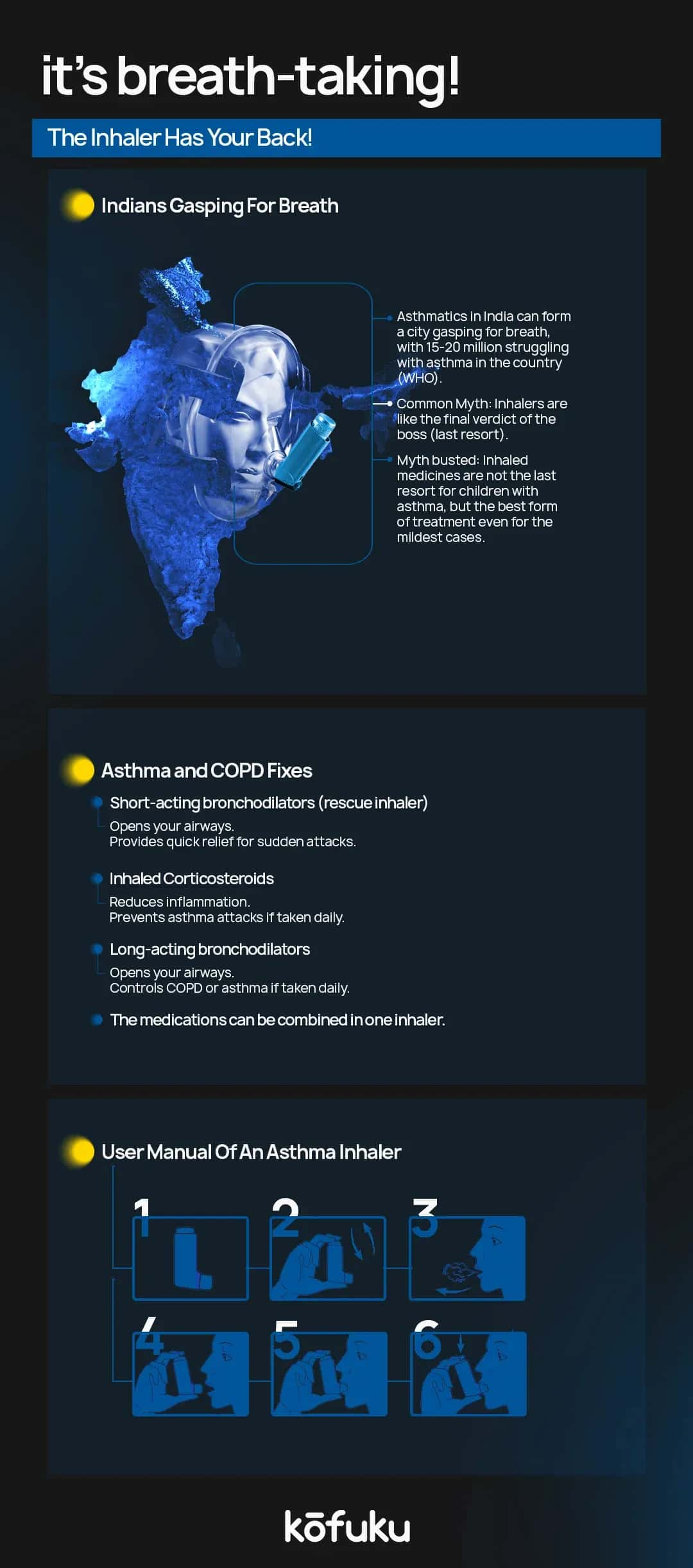Are Inhalers Addictive? What Are the Long-Term Effects?


Introduction
Everyone in the room had different reasons for being there. Some wheezed softly, others looked worn from sleepless nights, and a few clutched their rescue inhalers like lifelines.
Among them was Joseph, a college student who had recently started using his inhaler more often than prescribed. He wasn’t alone. Across cities and clinics, doctors have begun noticing a similar pattern: people relying on their inhalers not just for emergencies, but almost like a comfort tool.
Asthma and addiction might not be assonance many people usually assign to inhalers. But reality seldom follows the laws of man, and in our world, what gives you your breath back tends to take it away as well. That raises a question many hesitate to ask: Can inhalers be addictive?
The Exaggerated Drama of Inhalers
Let’s clear the air! Technically speaking, most inhalers aren’t addictive in the way substances like alcohol or nicotine are. They don’t produce a “high” or lead to physical dependency.
However, some types, especially albuterol (short-acting β2 agonist SABA), which is also used for treating acute asthma quickly, can lead to psychological dependency if overused.
This happens when someone becomes so used to the immediate relief that albuterol provides that they begin reaching for the inhaler even when it is not required.
It cannot be considered a classic addiction, but over time, due to overuse, it can spiral into poor asthma control. It’s important to take the dose as instructed by the health practitioner, as the asthma risks or complications can increase, leading to severe asthma, cardiac arrhythmias, and hypertension.
It’s advisable to use it only as a rescue medication for mild asthma and not for severe asthma.
What Are the Long-Term Effects?
Whether it’s a rescue inhaler or a corticosteroid inhaler for daily control, each comes with its own list of potential side effects -
1. Short-acting inhalers (Albuterol)
-
Tremors
-
Increased heart rate/ palpitations
-
Restlessness
-
Headaches
-
Muscle cramps
-
Breathing problems
-
Tightness in your chest
The side effects usually subside quickly, but regular overuse can strain the heart or worsen the attacks.
2. Steroid Inhalers
-
voice changes (hoarse)
-
Oral thrush (fungal infection)
-
sore throat
-
cough
-
weight gain
-
mood changes
-
forgetfulness
-
hair loss
-
bruising quickly
-
high blood pressure
3. Rare cases
-
bone thinning (osteoporosis)
-
growth issues in children
-
Suppression of the adrenal glands
-
muscle weakness
-
cataracts
-
glaucoma
Most can be managed with good inhaler technique, such as using a spacer and rinsing the mouth after use to avoid oral thrush.

Should I Be Worried about Steroids Being in My Body?
Not really, because only tiny quantities of steroid medication make it into the bloodstream when inhaled. You aren’t going to be a bodybuilder (if that’s what you’re thinking of). This occurs for several reasons. The steroids formulated for asthma inhalers are specifically engineered to have limited absorption through the lining of the bronchial airways.
Additionally, each dose from an inhaler releases only a very small amount of the drug. And even those doses are measured in micrograms.
I can understand that this would cause more fear in you, but it's crucial to understand that avoiding inhaled steroids due to fear of side effects can lead to serious health risks that are often far more dangerous than any possible long-term effects.

Conclusion
Inhales are lifesavers (in the literal sense). But they work best when used correctly and under a doctor’s guidance. If someone finds themselves using a rescue inhaler more often than twice a week, or they feel anxious without it. It’s time for a check-in with their healthcare provider.
Because the goal is to manage the asthma attack, not make it worse.
FAQs
Q. Are inhalers addictive?
A. No, most inhalers are not addictive in the traditional sense (like drugs of abuse). However, some people may become psychologically dependent on the relief they provide, especially quick-relief (rescue) inhalers like albuterol.
Q. Which types of inhalers are most associated with dependency?
A. Rescue inhalers (e.g., albuterol) can lead to overuse because they provide rapid relief from asthma symptoms. Dependency can occur, but this is not the same as addiction. Preventive or maintenance inhalers (e.g., corticosteroids) do not produce dependency.
Q. What are the risks of overusing a rescue inhaler?
A. Worsening of asthma control, leading to decreased effectiveness, causes side effects such as tremors, rapid heartbeat, anxiety, or headaches.
Q. Can steroid inhalers cause addiction?
A. No. Inhaled corticosteroids are not addictive and are meant for long-term control. They reduce inflammation but do not cause euphoria or cravings.
Q. What are the long-term effects of using inhalers?
A. Long-term overuse can lead to cardiac side effects and reduced effectiveness.
Prolonged use may cause hoarseness, oral thrush, or, in rare cases, reduced bone density or adrenal suppression (at high doses).
Q. Can you build a tolerance to your inhaler over time?
A. Yes, overusing rescue inhalers like albuterol may reduce their effectiveness over time. This isn’t true addiction, but your body can become less responsive, especially if the underlying condition isn’t well managed.

